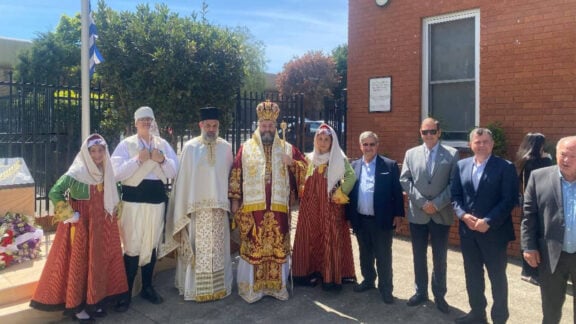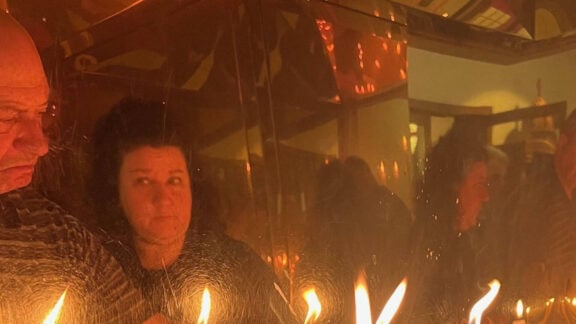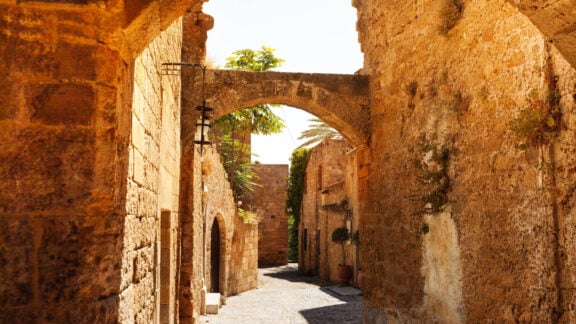Archaeologists have unveiled a remarkable Byzantine-era complex in Israel, featuring a vibrant mosaic floor with a Greek inscription from the Bible.
The inscription, quoting Deuteronomy 28:6, reads: “Blessed are you (lit: peace be with you) when you come in and blessed are you when you go out.”
The discovery was made during pre-construction excavations for a new neighborhood near Kiryat Gat. The Israel Antiquities Authority (IAA) has identified the site as a significant Roman and Byzantine-era location, possibly a monastery.
The site, which dates back to the fifth or sixth century C.E., reveals a wealth of artifacts, including a winepress, a large warehouse, and imported goods like metal, glass containers, coins, and marble objects. Excavation managers Shira Lifshitz and Maayan Margulis told Smithsonian Magazine that the site is “The largest and most significant discovery in the region from the Roman and Byzantine periods.”
The mosaic floor, located in what is believed to be the monastery’s main aisle, features intricate designs of crosses, lions, doves, flowers, geometric patterns, and an amphora (an ancient jug). These artistic elements, combined with the Biblical inscription, suggest the site was of considerable importance.
The site was continuously occupied from the early Roman period (around the first century C.E.) to the late Byzantine period in the sixth century. Archaeologists believe its first human activity may date back 6,000 years to the Chalcolithic era.
This discovery sheds light on the spread of Christianity during the Byzantine Empire’s golden age. Following Emperor Constantine I’s conversion to Christianity in the fourth century C.E., the Byzantine Empire became a hub of religious and cultural development.
The IAA continues to work on preserving the site and its artifacts, offering invaluable insights into the history of the region.









